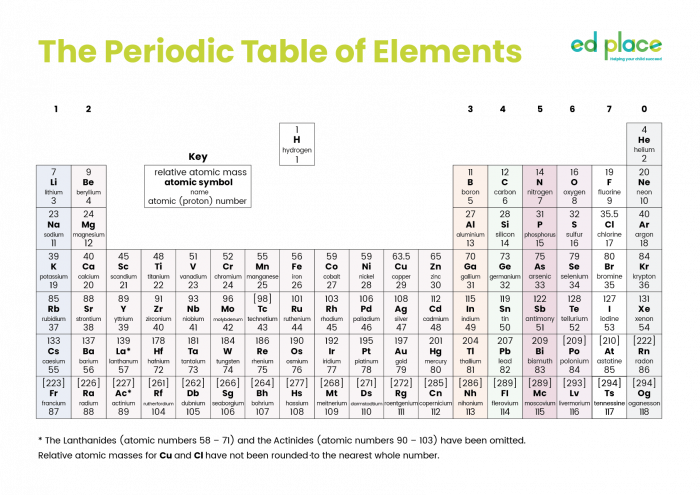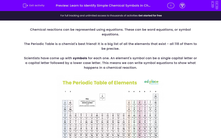Chemical reactions can be represented using equations. These can be word equations, or symbol equations.
The Periodic Table is a chemist's best friend! It is a big list of all the elements that exist - all 118 of them to be precise.
Scientists have come up with symbols for each one. An element's symbol can be a single capital letter or a capital letter followed by a lower case letter. This means we can write symbol equations to show what happens in a chemical reaction.

Some of the elements have a symbol that is very much like its name, for example carbon has the symbol C and magnesium has the symbol Mg. But some elements' names have come from Latin, for example the Latin name for gold is aurum. So the symbol for gold is Au.
It's important to remember that the first letter of an element's symbol must be a capital letter. If the symbol has two letters, then the second one will be lower case.
There may also be some little numbers written in some symbol equations - but don't let these throw you off. They just tell us the number of atoms of each element that's in the molecule or compound - we don't need to worry about these in this activity.
Can you work out what elements are involved in some simple chemical reactions?









